The gardens facilitate plant, climate, and plant-climate interactions, ecology and pollination research by scientists and undergraduate and post-graduate students in Trinity Botany to address the current globally important issues of sustainability, including food and energy production, climate change and the biodiversity loss.
Two of Botany’s research groups are actively using the garden for experimental studies:
Dr Matt Saunders, Assistant Professor, Botany, specialises in the field of plant and environment physiology. His research focuses on the response of plants to changes in their physical, chemical and biological environments and how this information can be used to assess the resilience and adaptive capacity of terrestrial ecosystems to global environmental change.
Matt is currently overseeing two research projects at the garden. Click on an image below to read more.
Find out more about Matt’s research, including a list of his publications here.
Professor Jane Stout’s expertise is in the field of ecology, with an emphasis on the impacts of humans on biodiversity and ecosystem services. She and her research team aim to understand the processes and consequences of changes in land management and the invasion of non-native plant species, using plant-pollinator interactions as a model system. There is global concern over loss of pollination services and Jane’s research informs biodiversity conservation and agriculture, both nationally and internationally.
Jane employs field-based experimental studies combined with laboratory analyses to characterise insect behaviour, plant breeding systems, biodiversity and conservation of pollinators and their impacts on plant population dynamics. Her research programme is inter-disciplinary: while her own expertise covers both botanical and zoological fields, she also collaborates widely with geographers, socio-economists, chemists and molecular biologists, both nationally and internationally.
Jane is Chair of the Irish Forum on Natural Capital and deputy Chair of the All-Ireland Pollinator Plan.
Find out more about Jane’s research, including a list of her publications, here.




